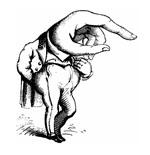
Freak Bus Across Afghanistan
TALES FROM THE GREAT HIPPIE TRAIL — PART II
Ed. Note: The first installment of this two-part series appeared in our April issue and narrated the author’s initial passage in 1976 along the Great Hippie Trail through Europe, Turkey, Iran, and into Pakistan.
“But a Samaritan…when he saw him, he had compassion.” — Luke 10:33
Leaving Quetta, the capital of Baluchistan, I watched men dive onto rolling trains as they pulled into the station, their solution to massive overcrowding. My workaround was to pay a porter five rupees (50¢) to fight his way on board and hold a seat by force until I came. Thus, I found space on the rigid wooden benches of a third-class train to Lahore, Pakistan. I commented on the armored car packed with soldiers at the head of the train to nearby passengers who spoke English. They shushed me, warning that spies were on board. Only after the clatter of the train became loud did one man venture to explain the Baluchi war to me.
Exhausted, I felt an overpowering need to lie down. My only choice was to curl up under a bench, despite the filth there from men’s continual spitting. But I lay there for hours. At Lahore I caught a steam train to India. At the border, a policeman claimed my entry had been illegal and I could not exit Pakistan. I could return to Lahore for administrative remedies or pay him 15 rupees ($1.50). I paid the bribe.
By the time I entered India, my jeans would fall off if they weren’t belted. I’d lost at least 15 pounds, probably more. My diarrhea was nearly continuous. I was exhausted by crowds, curious children, cheating shopkeepers, hustling drivers, pleading beggars, and hard-fought travel arrangements in dizzyingly unfamiliar places.
Very fortuitously, an Indian student I’d met in college had written to his parents about my trip and had given me their address. Their home was in Udhampur, India, only 160 miles from the border. I decided they were my best chance for help. It turned out they lived on a military base. At the base gate, I asked for Mr. Chandha, with no idea of what to expect. We’d had no prior contact.
You May Also Enjoy
As a practice of personal piety, the laity may use the posture of prostration as an expression of humility only in private.
Just days before the massacre of dozens of Christians during a Mass in Baghdad, Iraq's Chaldean Patriarch warned of a 'Satanic plan' to drive Christians out of the Middle East.
The slain editor of Charlie Hebdo has posthumously published a book on the subject of "Islamophobia," which he calls a "misplaced fight" spawned by "disgusting white, left-wing bourgeois paternalism."

